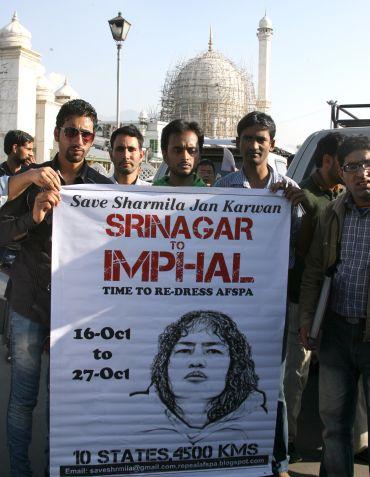
Colonel (Dr) Anil Athale (retd) on why AFSPA should not be repealed in parts of Jammu and Kashmir
Some days ago, this author happened to watch on television a discussion on Irom Sharmila's marathon fast. One was left thunderstruck when one young girl from Delhi, suddenly interjected saying, "so the soldiers just shoot anyone they feel like!" The well-known female anchor with larger than life image of self and with a pancake makeup, nodded knowingly with an understanding 'tut tut'.
The fact that it was a pre-recorded programme meant that the editor did not feel the need to edit out this outrageous remark. But more was to follow. On November 4, the Economic Times (page 14) thundered editorially, 'Repeal the AFSPA: India's democracy has no place for this brutal law that has been in place for 53 years.' The editorial went on to then quote the United Nations, Amnesty International in support.
It also famously went on to say that the act has failed in the north-east. It went on to say that the act has 'left a trail of corpses' presumably it refers to 'civilians' only for thousands of soldiers who died battling Naga or Mizo rebels do not count! This is not so bizarre at it sounds, for there is a clamour of late about the 2,000 odd graves in Kashmir... mostly of militants who infiltrated but no mention of the 5,000 Indian soldiers who died during the same period!
...
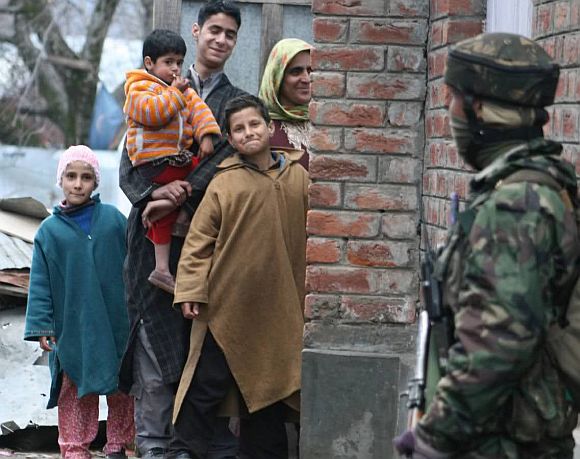
It appears that the Left-liberal dominated government may well succumb to this concerted campaign and remove the legal protection of soldiers who are engaged in fighting a guerrilla war launched by our neighbour. This is a last ditch attempt inject some sense of realism in the debate by an author who has been studying this form of war in the north-east, Kashmir, Sri Lanka, South Africa and Northern Ireland for the last 25 years.
The first and foremost fact that must be understood is that the armed forces have NO powers to act within the country other than in aid to civil authority. These powers are defined by Sections 129 to 131 of the Criminal Procedure Code. The CrPC sections dealing with riots empowers the local magistrate/police commissioner to call army in 'aid to civil authority'. The local military commander is under legal obligation to obey this demand. However, the quantum of force and methods to be used are at the discretion of the military commander.
The civil authority has to give this requisition in writing. Section 131 that was added in 1973, gives a power to a commissioned officer to act even when a magistrate is not present, but must contact a magistrate at the earliest. This genesis of this section was that in West Bengal the armed forces were came under criticism when in their presence mobs destroyed government property, while the army watched helplessly since a magistrate was not present. These are the only powers available to the armed forces.
...
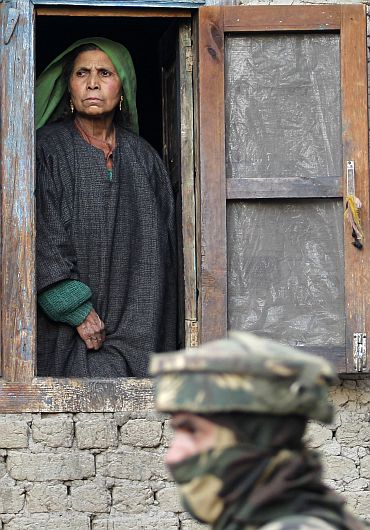
The Assam Special Powers Act 1958 was promulgated when the Nagas revolted, civil authority collapsed and armed and organised Naga rebels controlled vast stretches of territory and began a guerrilla war against the state. It is not aid to civic authority but a virtual army rule because of breakdown of state or inability of the state to deal with armed challenge... this is NOT for crowd control but fighting an armed group intent on overthrowing the state. Incidentally the UN charter gives the right to the member state to defend itself against an armed challenge.
AFSPA is merely an enabling provision and the forces act at the behest of the government and not on their own. This is meant for use in a 'disturbed area' where the writ of the state has ceased to exist and its existence is challenged by an armed group. The purpose of this act is to fight a guerrilla war.
In this war ambushes, raids, combat patrols are the tactics used by the army. These actions are not covered under the CrPc and IPC. The armed forces have no other police powers so it is not special.
Can a guerrilla war that is supported and even fought by foreign citizens on our soil be faced in any other manner, should the NSG not have been used in Mumbai attack on 26/11? In Kashmir the army faces a 26/11 situation on a daily basis.
...
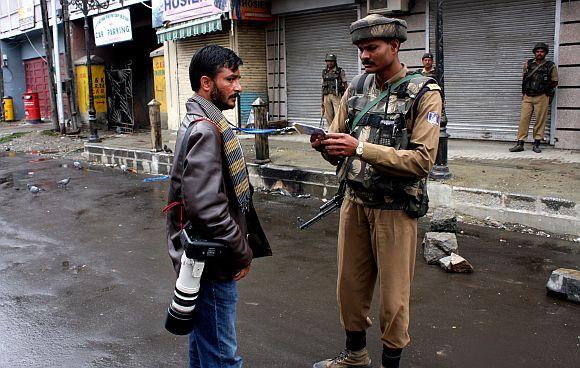
Does the Indian Army use excessive force? Funny that countries that preach to us like the US have been using drones, helicopters, artillery, fighter aircraft etc as so also Pakistan! The Indian Army has never used heavy weapons against civilians due to fear of causing collateral damage and is yet being criticised. The Indian Army fights with one hand tied, non use of full force. Some want it to fight with both hands tied!
The third issue is can it be removed from some parts in Kashmir that are undoubtedly peaceful. The problem in this case is what if the militants commit violence somewhere else and take shelter in these areas? Knowing fully that the army cannot operate here! We all know the kind of issues that come up due to police station jurisdiction, do we want that?
There is indeed a danger of misuse by individuals and atrocities under the protection of this act. But they are then chargeable under the Army Act. The army has an enviable track record of punishing wrong doers for various offences.
...
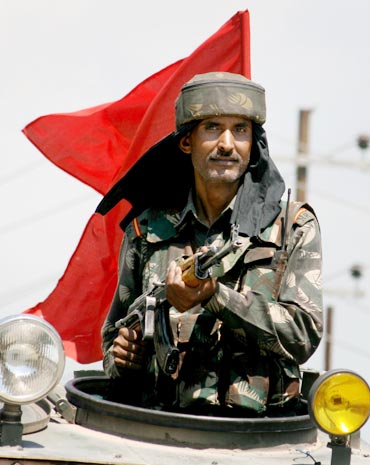
Let us conjure up a scenario that would unfold in case this act is repealed.
A battalion on the Line of Control in Kashmir gets information that a group of 10 militants, five Pakistani citizens and five Kashmiris, have infiltrated through the LoC and are moving towards Baramulla town. The report says that they are equipped with AK-47 rifles, bazookas and grenades. The infiltration was facilitated by the Pakistani Army by firing on our posts to give cover. The information is authentic as en-route the infiltrators killed two soldiers and wounded three.
This information was obtained from a wounded soldier before he succumbed to his injuries (dying declaration). The battalion commander alerted his reserve company to stop them and intercept them before they enter Baramulla town so as to avoid casualties to civilians.
It was close to midnight, the battalion commander rang up the nearest judicial magistrate at Uri. He was told that the sahib had retired for the day and he should ring up next morning. As he rang up the magistrate next day, the reports had come in that the infiltrators had crossed over to other tehsil. The magistrate politely told the officer that he should instead contact Bandipora tehsil.
In another instance, the infiltrators had established themselves on a hilltop. Since a presence of magistrate was necessary to take action, he was requested to accompany the troops. But halfway up the mountain, the magistrate complained of chest pain and could not proceed further. The pursuit was then abandoned.
In a third instance, the battalion was lucky. A patrol accompanied by magistrate encountered a group of armed men. According to procedure, the magistrate warned them to surrender, but instead the group took position and began firing. The magistrate escaped but two soldiers died on the spot. Three Pakistani citizens were overpowered and brought back to the headquarters. There they were charged with 'waging war' against the state.
At the last news the trial was going on in high court and the court did not find evidence to substantiate the charge that they had actually fired. They were therefore charged under violation of the Passport Act. Since they had already served over ten years, they were released immediately and repatriated through the Wagah border. Television channels hailed it as the triumph of the Indian justice system.